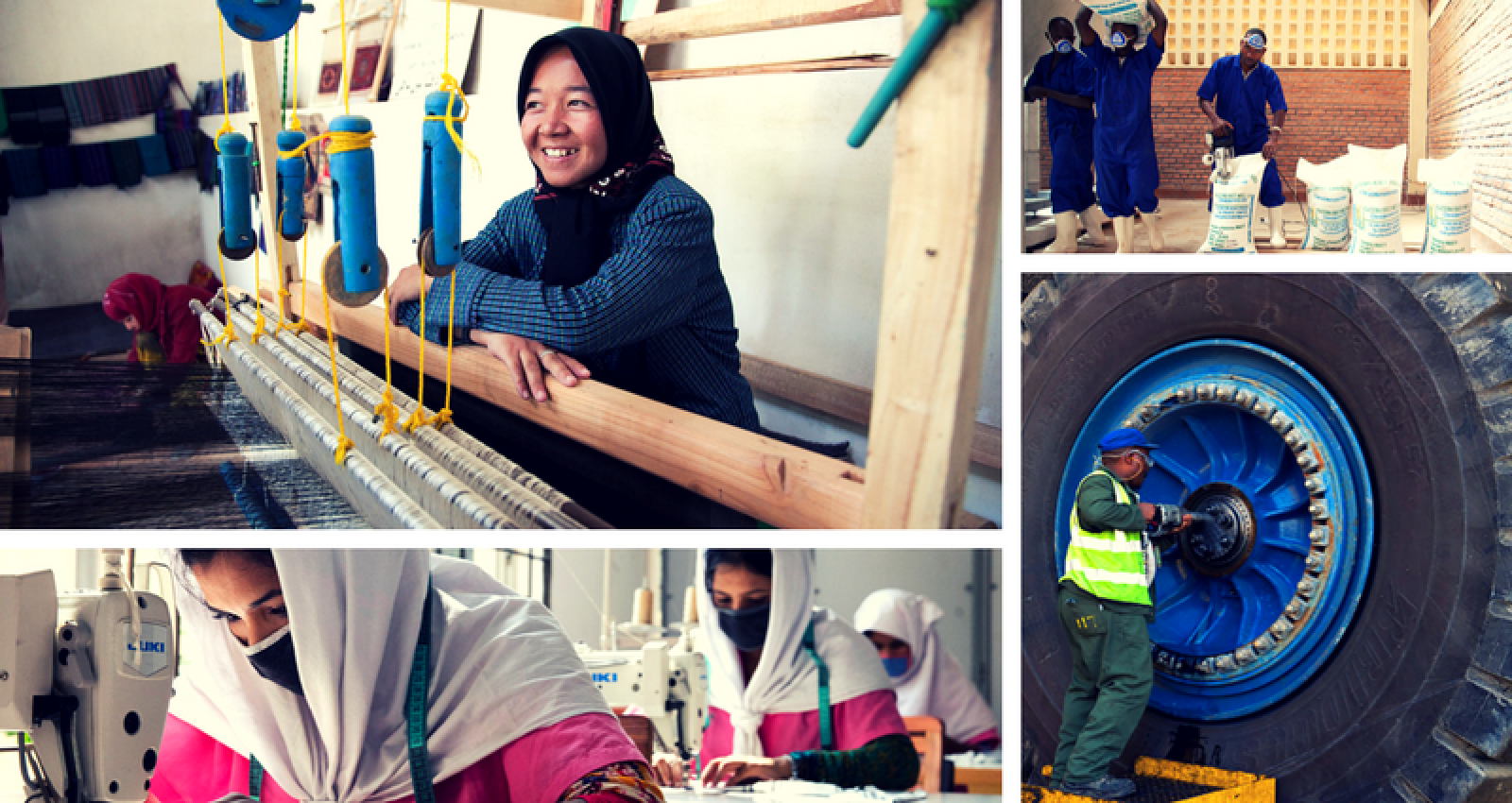TWEET THIS
Much attention has been paid to the importance of focusing on rural areas when it comes to eradicating poverty. That is because about 80% of extremely poor people today live in rural areas. For good reason, policymakers and development institutions have traditionally focused on improving agriculture as a way to boost rural incomes and reduce poverty.
Increasingly, however, there is a recognition that when it comes to reducing rural poverty solutions need to look beyond the farm. In many rural areas, while most persons farm, non-farm activities – activities that do not constitute primary agricultural production – are critical sources of additional income for the poor. Such activities include value chain activities, such as agro-processing, transport, distribution, and marketing, - that are intricately linked to the strength of the farm sector – but also other activities such as tourism, rural manufacturing, retail, construction and mining, plus self-employment activities such as handicrafts, bakeries, mechanics and so on.
Consider the facts.
- As a whole, the rural non-farm economy is estimated to account for up to a third or even half of rural household incomes.
- The rural non-farm sector can, and often does, contribute to economic growth, rural employment, poverty reduction, and a more spatially balanced population.
- Within the rural population, households that don’t have some form of non-farm income tend to be poorer.
In a recent IEG evaluation, we assessed the extent to which the World Bank Group has supported activities in the rural non-farm economy over the last ten years. Between 2004 and 2014, the World Bank Group invested about $46.5 billion to support rural non-farm activities.
What we found through our evaluation is that the Bank Group has been a leading research organization in this space, but that it has only recently begun to weave together operational solutions – across the institution - that link the rural poor to more productive and viable non-farm economic opportunities.
While recognizing that the extreme poor require social protection, the Bank has provided the rural poor with access to critical infrastructure and services. These efforts – including community based approaches – have increased household and community resilience, but they have not succeeded in lifting large numbers of the rural poor out of poverty. These approaches also tend to reach the rural poor “where they live”– they lack diagnostics of human geography, migration – including seasonal and household decision-making patterns related to risk.
Another approach often pursued by the Bank is to support opportunities for groups working along agricultural value chains. These efforts have increased productivity, revenues and sales, but evidence is lacking that they are systematically reaching and yielding poverty-reducing benefits for the poor.
More recently, the World Bank Group has increased efforts across the Agriculture and Social, Urban, Rural, and Resilience Global Practices, and in collaboration with IFC, to develop ways to link the inclusive features of community-based approaches to the more productive and market-oriented mechanisms characteristic of value chains. Social protection schemes have also begun to include productive components. And the work on gender is expanding to include more attention to differentiated needs of women at design. A recent panel hosted by IEG brought together experts from across and outside the World Bank Group who laid out the diverse challenges and most promising approaches to address rural poverty through the non-farm economy.
Based on what we found, our evaluation makes a number of recommendations. We highlight several of them here.
First, the evaluation recommends that the World Bank Group, including the International Finance Corporation, do more to innovate, to find ways to make the competitive models that we identified more inclusive, but to also think about ways that we can make our community investment models more economically viable. The recommendation indicates that this doesn't have to be done in a single project but that the Bank Group can achieve far more coordination, or collaboration, in the rural space along these lines.
Second, we proposed that, at the corporate level, the World Bank and IFC should clarify their approach to the rural non-farm economy, and as part of it, how the Bank Group engages across its institutions to systematically promote non-farm economic development to reduce poverty in the rural space.
Third, we recommended that the World Bank Group should work to close knowledge gaps about what works to reduce rural poverty within the rural non-farm economy. There are/is an increasing number of impact evaluations in the agriculture sector, but more also needs to be done to understand the relative contribution of complementary investments in the enabling environment (roads paired with electricity, or power and finance, etc).
Fourth, we asked the Bank Group to consider including in its value chain analysis and M&E a consideration of poverty and gender impacts, including income and employment for the rural poor. Related to this, we recommended that the Bank Group strengthen and deepen gender analysis during project preparation of rural non-farm projects with a view to better understanding and addressing binding constrains to increased female labor participation in the rural non-farm economy.
Finally, in countries where the rural economy is a key part of the solution to ending poverty, our evaluation recommends that the World Bank Group should (in partnership with donors and client countries) collect information on both formal and informal rural enterprises and their constraints and performance to help improve country engagement strategies.









Comments
Staying o my on the farm…
Staying on the farm policy means sustainability to farmers and the community and the ldcs.
Farming for final processing and sharing in the markets.
Only farming is the classical prescription for sustainable poverty and backwardness and marginalization.
Development Studies and Research Institute... University of Khartoum... Sudan
Interesting to see that…
Interesting to see that Human Capital is not part of the picture.
Add new comment